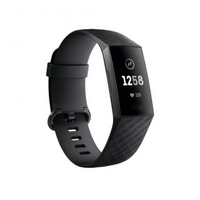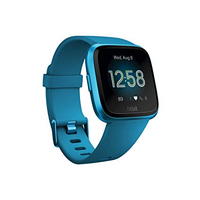We've all had our heart rate taken at the doctor's office, but a new study has highlighted the limitations of this method in telling us anything meaningful about our health. This is changing, though, thanks to the abilities of the best fitness trackers for monitoring heart rate over a prolonged period of time. Results published in the journal PLOS One used wearables to test the heart rate of over 90,000 participants, revealing a variety in resting heart rate among those tested.
The study reveals that taking a one-off measurement of resting heart rate can't tell us anything about the meaning of your heart rate in the greater context of your regular rate over a prolonged period of time. The metric "provides very little useful information about the current health of an individual, unless well out of the expected range".
Currently, doctors will only act on the results of a one-off heart rate test if it is out of the 'normal' range - significantly higher or lower than average. However, a lower heart rate is often observed in athletes or those with very high levels of fitness. It has also been observed that pregnant women will have above-average resting heart rates. So whilst 'abnormal' heart rates may indicate a greater risk of cardiovascular diseases, they may also be nothing to worry about.
The study co-author Giorgio Quer has said that "what is normal for you may be unusual for someone else and suggest an illness."
Therefore, fitness trackers "might prove to be a rich source of individual health information not only for cardiovascular health but also for pulmonary status, infectious disease detection, reproductive health, and possibly more. "
Apple and Fitbit are two of the best wellness brands for heart rate monitoring, and while Apple devices are on sale less often, you can often pick up a Fitbit for less - take a look at our guide to the best Amazon Prime Day Fitbit deals for the latest offers.
Smartwatches have an increasing importance in day-to-day life
This research adds another advantage to owning a fitness tracker. Beyond monitoring our daily steps, calories burnt and sleeping patterns, we can now add significance to our resting heart rate by building up a profile of this metric over time.
Whilst the study found a large fluctuation in heart rate from person to person, the values for each person rarely fluctuated by more than 10 bpm over the course of the year. This means that, even if a changing heart rate falls within what is understood as a 'normal' rate, it can be recognised and any potential causes considered far sooner. After all, some studies have suggested that increases in a person's resting heart rate could be an early sign of infections.
Whilst "the technology already exists" to continuously monitor heart rate, the benefits of tracking these vitals have yet to be fully exploited. We recently revealed that one-in-five Americans wears a fitness tracker, and for those who don't, this research has revealed another great reason to invest.

Looking for more health and fitness content? Then read our guide to the best online fitness programs.



